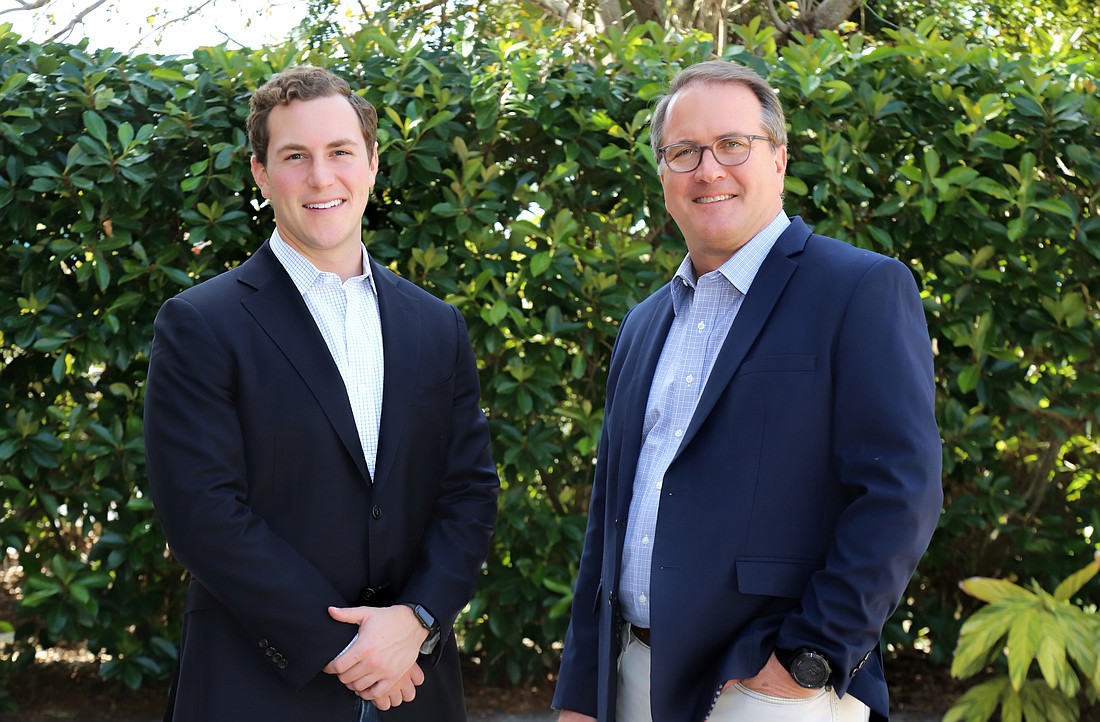- April 5, 2025
-
-
Loading

Loading

For Steve Jones, making an investment in a company requires more than just an infusion of cash.
“I call our firm more of a partner capitalist,” says the chairman and managing partner of Naples-based growth equity firm Aspen Capital Group. “We have a deep approach and like to help companies with more than just money. I love the fact that our portfolio of companies knows they can ask for help, and we’ll be there to provide the kind of help most VC firms wouldn’t want to provide. That’s our brand — we do whatever it takes to make people successful.”
With $150 million of capital, funds from a pool of 100 or so well-heeled investors, Aspen Capital Group will soon set more companies on the path to success using the approach Jones has taken since he first started the firm in 2001. Before he brings others into an investment, he wants to fully understand what he’d be getting people into — a strategy that requires more front-end work but has the potential for a bigger payoff.
“You have to figure out what you didn’t know you didn’t know,” says Jones, a former U.S. Air Force captain and New York-based investment banker for Merrill Lynch, focusing on telecom, media and technology firms. “And the deeper you get into a company, the more effectively you’re able to make decisions.”
Jones began investing in private equity opportunities in the late 1990s, using family capital. He has since brought on other investors/limited partners. Even with the ability to spread the investment — and risk — Jones makes a point to maintain the largest stake in a company. “This gives our limited partners a lot of comfort,” Jones says, “as we have more to lose than they do if we pick our investments poorly or can’t help our portfolio management teams effectively navigate the numerous challenges faced by nearly every early stage company.”
When Aspen Capital Group chooses to fully invest in a company, it will often help assemble boards and executive teams, and even take on operating roles itself. “I’m a big believer there is no business problem that can’t be fixed,” Jones says. “There are certain problems you don’t want to fix; if you don’t have a good product, that’s really hard. But if you have things like under-capitalization in some [area] or not enough management or the right managers, that’s easy to fix.
“Helping companies grow and helping people is a higher calling for me. And I love the fact that I can make some money doing it if I do it well.”
Aspen’s investments include RingLead, a provider of data quality management solutions for CRM platforms, and XG Sciences, which makes graphene nanoplatelets for a host of industries, including automotive, consumer packaging and electronics. It did its first major syndicated deal in the early 2000s, investing in Fort Myers–based cancer genetics testing firm NeoGenomics.
“We were involved before it was doing $100,000 in revenue,” Jones says. “People had good feelings about it.” That good feeling panned out: NeoGenomics did $104.7 million in revenue in the 2019 third quarter. (Jones remains a NeoGenomics board member.)
With a goal to invest around $50 million a year over the next few years, Aspen plans to continues its focus on tech and tech-enabled companies, with a particular interest in Software-as-a-Service. “We pick the industry verticals that are largely overlooked by technology or are under-deployed by technology,” Jones says. “Things like construction. There are a number of processes that have to go on in construction that are manual today and can be automated with Software-as-a-Service platform. Or insurance — it’s a very fragmented industry with lots of ways it can use technology to enable better outcomes.”
Jones likes to invest in companies that have already raised at least $3 million elsewhere. “I don’t like to be learning curve money,” he says. He does mostly Series A funding, of $5 million to $25 million. “They’ve got to be far enough along to know why they want to raise that kind of money,” he adds.
He’s also willing to stay in an investment for the long haul, sometimes as long as 15 years — something other investors won’t normally do. He saw firsthand how long it took NeoGenomics to "make it." “Getting a company to scale is really hard,” he says. “It takes a long time, but once it’s at scale, you can realize the benefits of the scale in incredible way. I’m a big believer in don’t sell too early.”